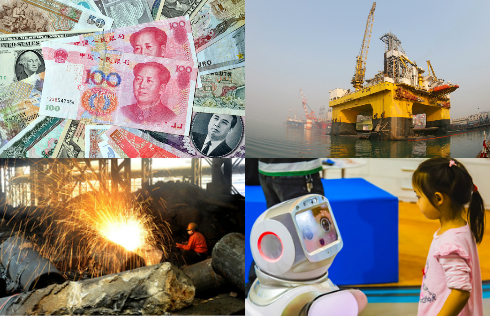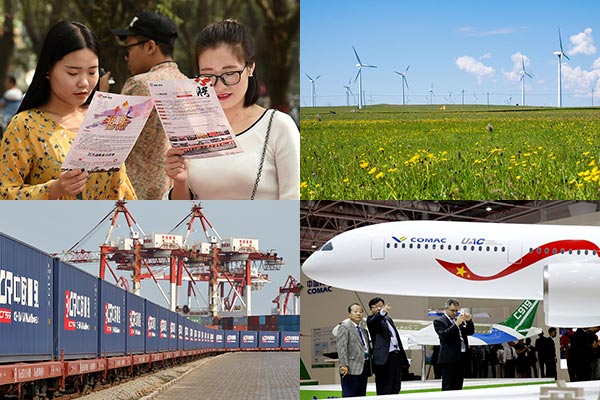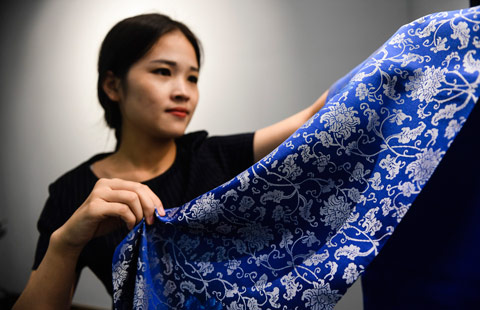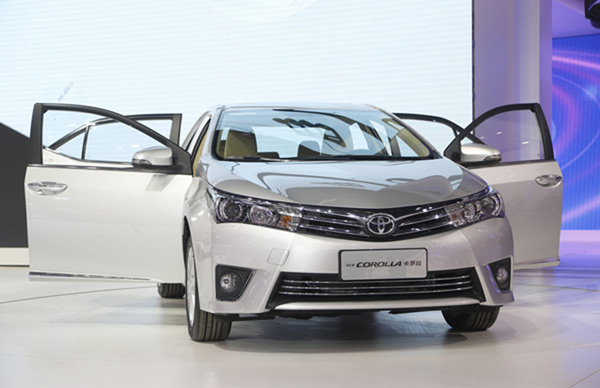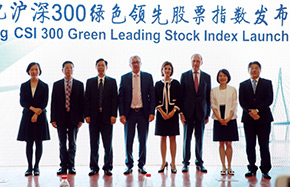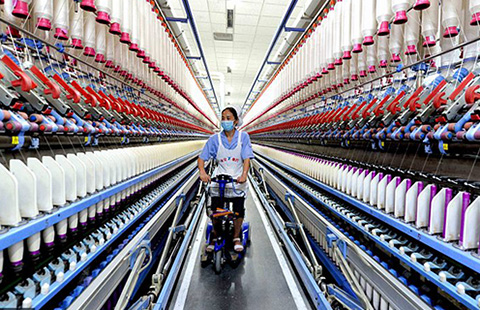Belt and Road Initiative takes auto industry globally
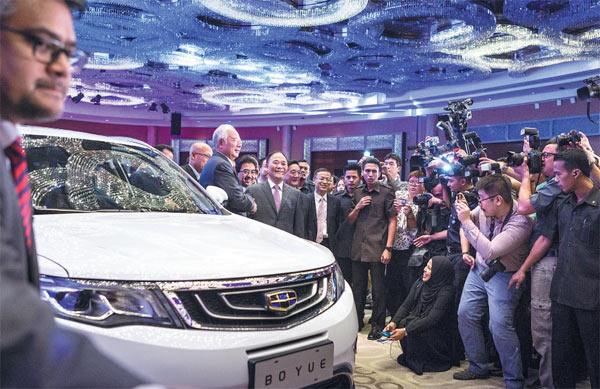 |
|
Geely's move to acquire Proton in the limelight. More global acquisition to follow suit backed on the Belt and Road Initiative. [Photo/Agencies] |
But key areas remain underdeveloped, offering new growth drivers
Industry insiders have hailed China's supportive policies as the backbone of expanding international automobile partnerships linked to the Belt and Road Initiative.
Cui Dongshu, secretary-general of the China Passenger Car Association, said China's automobile manufacturing industry is accelerating its progress in "going global".
"Within the framework of the Belt and Road Initiative, Chinese automakers will have wider scope and emboldened vision. As a result, they are forming overseas partnerships and establishing joint manufacturing plants, in addition to international trade in completed cars," said Cui.
He said the initiative has created a favorable political environment and business opportunities for Chinese carmakers' development. He added companies should work together systematically, going global in clusters.
Xu Haidong, an assistant to the secretary-general of the China Association of Automobile Manufacturers, said that, "Chinese carmakers could join together in negotiating with local auto dealers to ensure their voice is heard, in case the dealers have stronger influence in the market."
Xu added Chinese carmakers have embraced the concept of selling brands and services, upgrading from the earlier idea of simply selling cars.
Last month, Egypt-based Holding Company for Maritime and Land Transport announced it is sealing a deal with Chinese partners to produce 900 vehicles a month, leveraging the automakers' experience in assembling and machinery.
Its next step is to secure agreements on tractors and bulldozers with Chinese partners in 2018.
After acquiring a 49.9 percent stake in Malaysia-based Proton Holding and 51 percent of British sports car brand Lotus this year, chairman of the board of Zhejiang Geely Holding Li Shufu attributed the achievements to China's Belt and Road Initiative.
Yu Ning, senior consultant to Geely Holding, said: "The Proton deal was reached in the environment characterized by the nation's Belt and Road Initiative. Initiatives at the country level have played a critical role."
Sources familiar with the matter said that without the country's policy-based support, Geely would not have beaten two rival European auto giants in bidding for Proton and Lotus.
"The partnership between the automakers is also about the Sino-Malaysian relationship. It is Chinese Geely who willingly took on the responsibility of reviving Malaysian auto manufacturing, instead of taking Lotus only," according to the sources.
Learning curve
Experts said that Chinese carmakers' relatively low costs are their major advantage in better meeting local demands in Asia, Africa, Latin America and other developing regions, but shortcomings remain in terms of effective localization.
Cui at the China Passenger Car Association said: "Chinese products still lag behind those of mature automakers for two reasons: the overall standards of our manufacturing industry and a lack of local insight.
"China-made products might suit the domestic situation well, but can fail amid local challenges in other countries, resulting in negative word-of-mouth reputations in those markets."
Japanese and South Korean players adjust their products in accordance with the destination markets, launching local editions in the Middle East and Southeast Asia, for example.
Bai Ming, an official at the Chinese Academy of International Trade and Economic Cooperation of the Ministry of Commerce, also said that Chinese carmakers suffer from not fitting into local markets well.
"Usually it is not a matter of quality products, but the unfulfilled need for after sales services," he continued.
Bai advised: "Carmakers should pay attention to establishing value chains, especially connecting with partners on the supply and service side."
Both Bai and Cui said they viewed the development of a strong service network as much more important than sales, as service offerings decide a carmaker's long-term sustainability in an overseas market.
The experts suggested auto financing as a suitable business that is complementary to overseas services, since the sector has remained underdeveloped among Chinese companies for a long period of time.
State-owned FAW Group established its investment arm, FAW International Investment Co on Sept 24, aiming to support and consolidate its auto services in countries and regions along the Belt and Road.
A week later, Geely Holding announced it will increase its stake in Denmark's Saxo Bank to 51.5 percent. The deal is seen as highlighting the carmaker's drive to tap the expertise of European financial firms, although the transaction awaits regulatory approvals.
Geely powers turnaround at Proton
Zhejiang Geely Holding's recent acquisition of Proton has spurred a turnaround at the Malaysian automaker, according to company executives. They said the rejuvenation plans were part of the auto family's pursuit of a greater global presence. "The Malaysian brand will be positioned as a regional brand, targeting the South-East Asian markets with products developed on Geely's platforms," Li Chunrong, newly appointed CEO of Proton Holdings, said in Shah Alam, Malaysia via a video news conference.
Chairman of Proton Holding Syed Faisal Albar bin Syed AR Albar said: "The key to success is product and the other important factors are quality and brand. "We are in a positive and strategic partnership, with technologies being shared between each other. We are confident in Geely to deliver not only existing models, but also new products."
Proton board members also hailed the revitalization of the Malaysian brand. They added the next product will be derived from the Geely Emgrand Boyue SUV model in the local market's mid-size segment, which is equivalent to China's compact segment.
The Malaysia-based carmaker will also launch another four models with the latest technologies in the near future, bringing its offering to a total of five products. Feng Qingfeng, chief technology officer of Geely, said: "Proton's future products will be developed on Geely's latest 3.0 platforms, including the first product to also be based on the 3.0 generation of the Emgrand Boyue." Geely completed the transaction to purchase a majority stake in the British luxury sports brand Lotus on the same day as the Proton deal.
The Chinese motoring group now owns a majority stake of 51 percent in Lotus Advance Technologies, with a minority 49 percent being held by Etika Automotive, a Malaysian group.
Lotus will be Geely's Porsche equivalent, while the Proton brand is similar to Skoda in the Volkswagen family, according to Li Donghui, chairman of Lotus. Li is also a board member of Proton and executive vice-president of Geely.
He said Geely will help Lotus research and develop the next generation of volume products, to "bring the splendid sports gene into full play".
The group's Chinese board members confirmed that Lotus will follow Geely's pursuit of electrification and intelligent technology, but the platform on which future products will be based remains to be settled. Lotus CEO Jean-Marc Gales said earlier that the company will accelerate its R&D efforts in the SUV sector. The company hopes to launch models in the market in 2020, 14 years after the APX Concept SUV debuted at the Geneva Motor Show in 2006. Lotus is shipping three British-made sports car series-the Exige, Evora, and Elise-to the Chinese market.
Geely Holding reported revenue of more than $30 billion for 2016 and produced 778,896 cars that year.
- Zooming Into New Automobile Era
- ITL approved as finished automobile import port
- Contract dispute between Shenzhen-based Jinjia Industry and Trade Service Co, Ltd, Shenzhen-based Yile Industrial Co, Ltd, Shenzhen-based Lehua Industrial Co, Ltd, Shenzhen-based Zhuangzhongda Automobile Trading Co, Ltd, Guangzhou-based Guangbao Toyota Motor Sales Service Co, Ltd and Shenzhen branch of China Construction Bank Co, Ltd
- Jiangsu company works on fuel cell vehicles with Shanghai Intl Automobile City
- Xiamen among finished automobile import ports









